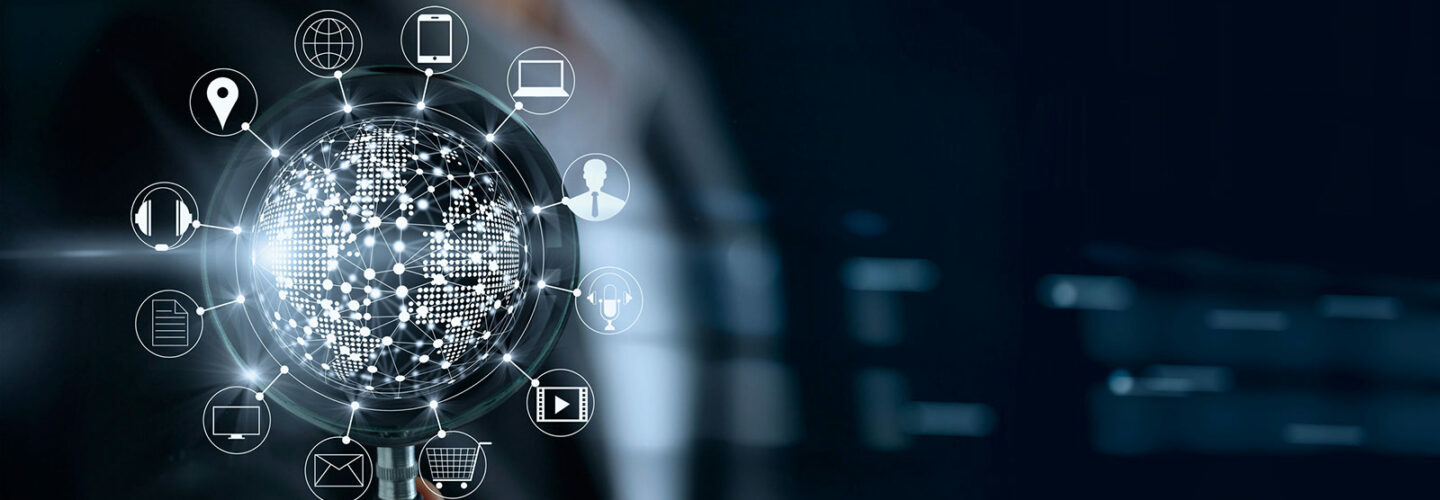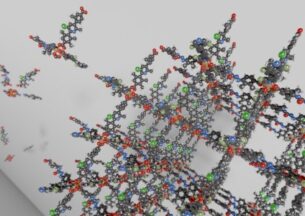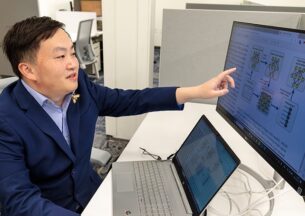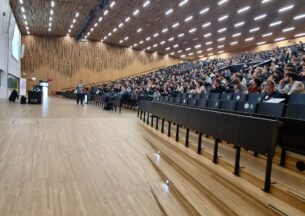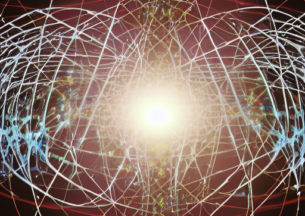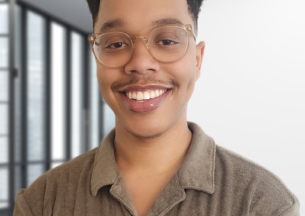UChicago CS Graduate Student Takes Prize at First-Ever Vatican City Hackathon
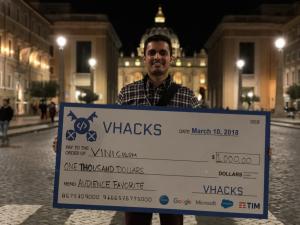
Vatican City is not the most likely site for a hackathon. But when the historic home of the Catholic Church got into the hacking for social good craze earlier this spring, one University of Chicago CS graduate student was there, part of a team that took home the audience choice award for applying facial recognition technology to help reunite refugee families.
Pranav Gokhale, a first-year graduate student working with Fred Chong’s EPIQC quantum computing research group, participated in the first edition of VHacks in early March. Though a veteran of several hackathons, Gokhale had never seen one quite like VHacks, where participants worked in a 500-year-old palazzo, bounced ideas off of cardinals and a prince, and gathered to hear Pope Francis extol the event (yes, he said the word “hackathon”) in his weekly papal blessing.
“The humanitarian focus was quite unique about this hackathon, and also the fact that they really emphasized bringing in people who were affected by these issues as guest speakers and for panels and discussions,” Gokhale said. “It made it not just a hackathon but more of a wholesome conference too. It was very cool to see a centuries-old institution embracing new technology.”
The event’s social purpose was underscored by its three themes: assist migrants and refugees, support interfaith dialogue, and encourage social inclusion. Gokhale’s team, made up of members from the US, UK, Israel, and Egypt, chose the first mission, with a focus on reuniting families separated by migration.
Their app — called Vinculum, the Latin word for “bond” — combined facial recognition, machine learning, and chatbot design to help families find missing loved ones. Through SMS, Facebook Messenger, or a web interface, users upload a photo and the app searches through missing person databases for similar faces, returning the closest match. Authorities could then use the results to reconnect the displaced party with their family members.
This function would be especially useful for refugee children, Gokhale said, who are less likely to carry identification or mobile phones that could help facilitate a reunion. And while the application draws upon professional-grade facial recognition and machine learning algorithms, it was important to make it as user-friendly as possible.
“In general, accessibility was pretty important since we worked on something targeted towards migrants and refugees,” Gokhale said. “Having a mobile entrypoint and an SMS service was really important, as that would probably be the dominant entrypoint for people in refugee camps. A chatbot is pretty good for a simple UI, where you don’t need to worry about where the photos are stored; you snap the photo, submit it, and it’s done. Everything else is automated on the cloud and seamless for the end user.”
The Vinculum team was chosen as one of the three finalists in its theme, and at the closing event, won the audience favorite award. The win came with a small cash prize, but more importantly, brought the project attention from industry and non-government organizations interested in collaborating on and continuing the project. Gokhale hopes that the app will be further developed and integrated to work with refugee organizations and photos from border control agencies.
“The current solutions range from bulletin boards that have physical photographs to at best databases where someone has to manually sort through,” he said. “So we see this as a technologically and practically better idea.”


